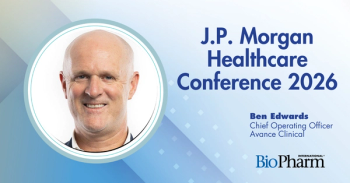
- BioPharm International-10-01-2011
- Volume 24
- Issue 10
How to Choose the Right CMO
Knowing in advance what you need can make a huge difference in a sponsor company's success.
Today, our lives are filled with choices. Should I buy or lease a new car? Should I purchase the generic or the name-brand product? Is it better to rehab an existing structure or build new? In most situations, the choices we make can be changed even in mid-stream with few long-term consequences. But the realities of business are more complex, particularly for a small or startup biotechnology company with limited resources and equipment. The decisions that are made can often determine the success or failure of the company. Smaller biotech companies cannot do everything alone. They often lack the knowledge and resources to independently follow the path from clinic to market. The solution: a collaboration with a CMO or contract development and manufacturing organization (CDMO). In fact, perhaps no choice is more important to get right the first time than the selection of an outsourcing partner.
Peter Soelkner
A well-chosen CMO with development expertise can be of vital support to smaller organizations by helping them to set up and manage processes and to facilitate creative decision-making during the early drug-development period. However, finding the right CDMO can be a challenging, time-intensive process. The following answers to common questions, based on the author's experience, are meant to provide guidance in making a suitable choice.
ONE PARTNER OR SEVERAL?
The first choice to be made is whether to partner with several companies or with one full-service CDMO that can help bring a compound from early clinical development through to commercial manufacturing and market supply. Developing and manufacturing an innovative drug involves considerable risks, particularly financial ones. Finding a single suitable partner can free up limited company resources, enabling the sponsor company to concentrate on core competencies such as R&D. Such a partnership can add perceived value to both the compound(s) and company, and help attract future investors and licensing opportunities.
HOW DO I FIND THE RIGHT PARTNER?
Generally speaking, the more experienced the CDMO, the greater the likelihood of success and the smoother the collaboration. Some questions to ask:
- How long has the CDMO been in business, and what kinds of work has it done? If relevant to the project, does the CDMO have experience with complex compounds?
- Is its work history consistent with your current and future project(s)?
- Does it have experience in supporting your company's drug-development requirements, including clinical filling as well as commercial manufacturing and market supply?
- Does it have relationships with regulators? How extensive is their knowledge of regulatory rules and international regulations?
- Does the CDMO have well-trained teams of scientists and engineers?
DOES THE CDMO HAVE A TEAM MENTALITY?
The core of any partnership is trust. Because small biotechnology companies often have less experience and resources in assembling their own project-management teams, knowing how and by whom your business will be handled is essential. The partner organization's level of experience and its designated project managers are crucial for realizing project-specific needs. The sponsor company must be confident that knowledge and information will be handled properly and shared among all team members.
IS THE CDMO CREATIVE AND FLEXIBLE?
New drug compounds often need to be adjusted depending on early clinical testing. A sponsor company should be certain that its CDMO has the necessary flexibility to address the changing needs of the compound and the market, such as new regulatory demands, upcoming competitive products, and changing healthcare systems. Determine whether the CDMO team is nimble and able to act quickly to update project specifications under tight timeframes. Be certain it has the expertise and dedicated staff to offer proactive approaches to challenges that may occur at each stage of drug development.
ARE INTERNATIONAL QUALITY STANDARDS BEING MET CONSISTENTLY?
Today, aseptic manufacturing is becoming more rigorous and demanding. Regulatory bodies demand that CDMOs keep current with new and emerging regulations and are enforcing more regularly quality standards around the globe. These rigorous standards also mean that a partner's facility must remain cutting-edge, from the way it is built to the technology it uses. Providing high quality yield of valuable product is a must.
IS THE CDMO'S FINANCIAL PICTURE CLEAR AND STABLE?
Because drugs take an extended period of time to develop, the relationship a sponsor company develops with a CDMO will often be a long-term one. Thus, be certain that the contract organization is able to demonstrate independent financial standing. A CDMO with a consistent history of organic growth is likely to be a strong partner, and also a strong ally.
DO YOU SHARE A COMMON VISION?
Good communication among team members, particularly in the beginning of a relationship, is not always easy to achieve. Differences in corporate cultures and business models and varying levels of knowledge and experience are just a few of the issues that can make communication among parties more difficult. Developing the right relationship and vision from the start will help ensure that the sponsor company's plan for the future is equally shared by the CDMO.
Having choices is a good thing. However, it is important to understand your company's needs and goals when making a choice. The recommendations offered in this article should help a sponsor company select the right CDMO for its organization. Any partner will strongly influence a company's future, so choose wisely.
Peter Soelkner, managing director, Vetter, + 49 751 3700-0,
Articles in this issue
over 14 years ago
BioPharm International, October 2011 Issue (PDF)over 14 years ago
Education and Training in Biopharmaceutical Developmentover 14 years ago
Trends in Biologics Outsourcingover 14 years ago
Survey Examines Trends in the Outsourcing Relationshipover 14 years ago
Contract Services Spending: Who's Spending What, and Where?over 14 years ago
Global Health Challenges Spur Vaccine Developmentover 14 years ago
Preparing for the Last Warover 14 years ago
Perspectives in MicroRNA TherapeuticsNewsletter
Stay at the forefront of biopharmaceutical innovation—subscribe to BioPharm International for expert insights on drug development, manufacturing, compliance, and more.




